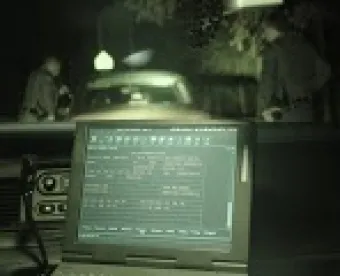The Supreme Court’s decision in United States ex rel. Escobar v. Univ. Health Servs., 136 S. Ct. 1989 (2016) (Escobar I)—and the First Circuit’s interpretation of the materiality standard on remand, United States ex rel. Escobar v. Univ. Health Servs., 842 F.3d 103 (1st Cir. 2016) (Escobar II)—resulted in a notable expansion of False Claims Act (FCA) liability. The United States District Court for the District of Massachusetts recently reconsidered and reversed its opinion dismissing certain FCA claims against a police department based on its alleged failure to comply with Title VI’s anti-discrimination requirements. See United States ex rel. Williams, Civil Action No. 12-cv-12193-IT, 2016 U.S. Dist. LEXIS 178032 (D. Mass. Dec. 23, 2016). The court’s analysis may lead to increased vulnerability for any organization that certifies compliance with federal statutes and regulations in connection with receipt of federal funds.
In Williams, the relator, a former police officer for the City of Brockton, Massachusetts, alleges that the police department “obtained grants from the DOJ by submitting false assurances and certifications that they would comply with civil rights and antidiscrimination laws and other administrative requirements.” According to the relator, the police department violated the civil rights of multiple minority groups while certifying to the contrary in order to receive federal funds from the DOJ’s COPS program. In support, the relator cited several civil rights complaints against the department, similar to civil rights violations frequently brought against most large police departments across the country, without additional evidence of actual violations.
Despite noting that the materiality requirement under Escobar I was “rigorous,” the Williams court found the relator satisfied that requirement by alleging a “longstanding pattern of discriminatory practices” contrary to certifications of compliance with anti-discrimination and other federal laws required for consideration by DOJ to receive COPS funds. The court focused on the relator’s (conclusory) allegations that “‘[r]acially neutral and non-discriminatory policing are a central tenet’ and ‘a core value’ of the COPS program” and analogized the antidiscrimination requirements to the requirements at issue in Escobar regarding the certification and supervision of mental health care providers. The court expressly quoted the First Circuit’s decision Escobar II in finding that a grantee’s compliance with federal civil rights laws “go[es] to the very essence of the bargain” of DOJ’s decision to provide COPS funding.
In addition, the Williams court held that the FCA’s public disclosure bar does not apply where an FCA complaint alleges any facts beyond those articulated in a civil rights complaint. According to the Williams court, dismissal would only be appropriate if the FCA allegations “parroted” the complaints of civil rights violations. Because the relator’s allegations were not merely “limited to those disclosed in the prior civil rights actions and newspaper articles,” the court found that the allegations were not publicly disclosed. Consequently, the court did not need to determine if the relator qualified as an “original source.”
Finally, the Williams court joined the distinct minority of district courts in adopting an interpretation of the FCA’s statute of limitations outlined in United States ex rel. Pogue v. Diabetes Treatment Centers of Am., 474 F. Supp. 2d 75, 89 (D.D.C. 2007). Under the standard in Pogue, a relator may bring a cause of action under the FCA if within six years of the date of violation OR within three years of the date the government learns of the violation – which, as in the Williams case, typically occurs with the filing of the sealed complaint – but in no event more than 10 years after the violation occurred. This approach essentially provides a 10 year statute of limitations from the date of a relator’s complaint, unless the defendant can show that a responsible government official was aware of the allegations prior to filing of the action.
The combination of the Williams court’s holdings regarding materiality, public disclosure and the FCA’s statute of limitations creates shockingly broad exposure for defendants. Based on the Williams analysis, any police department with a history of civil rights complaints that certifies compliance with federal anti-discrimination laws to receive federal grants may be vulnerable to an FCA lawsuit regardless of the merits of the civil rights complaints. The court’s approach to public disclosure and the statute of limitations allows a potential relator with very little personal knowledge to cobble together information gleaned from a variety of publicly available complaints to pursue a False Claims Act case. And, Williams is not necessarily limited to police departments. The Williams court’s approach to materiality could be used to find that compliance with nearly any law or regulation advancing a societal interest is material to the government’s payment decision. Hopefully, other courts will take a more sensible approach to interpreting these key elements of the FCA.



 />i
/>i

